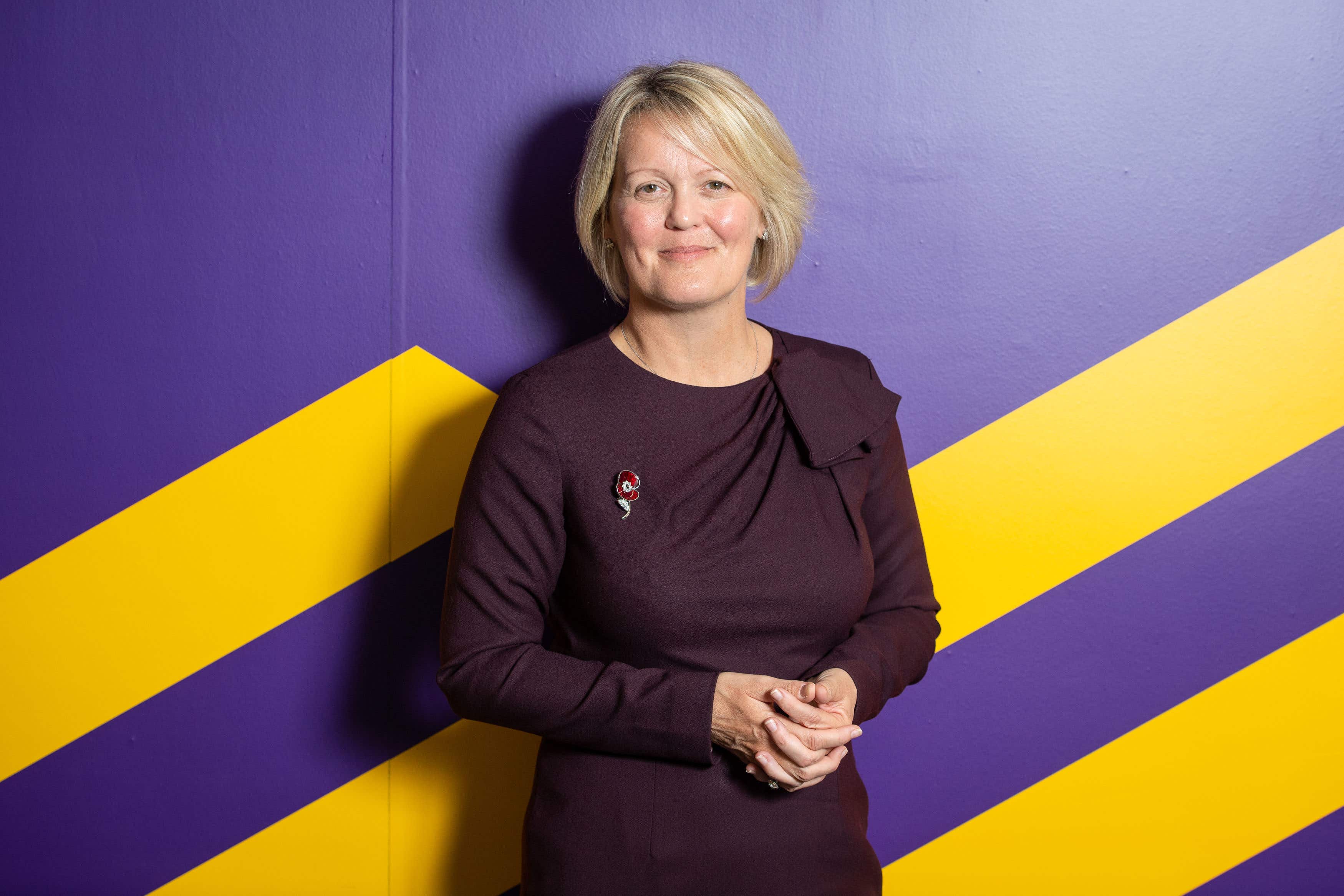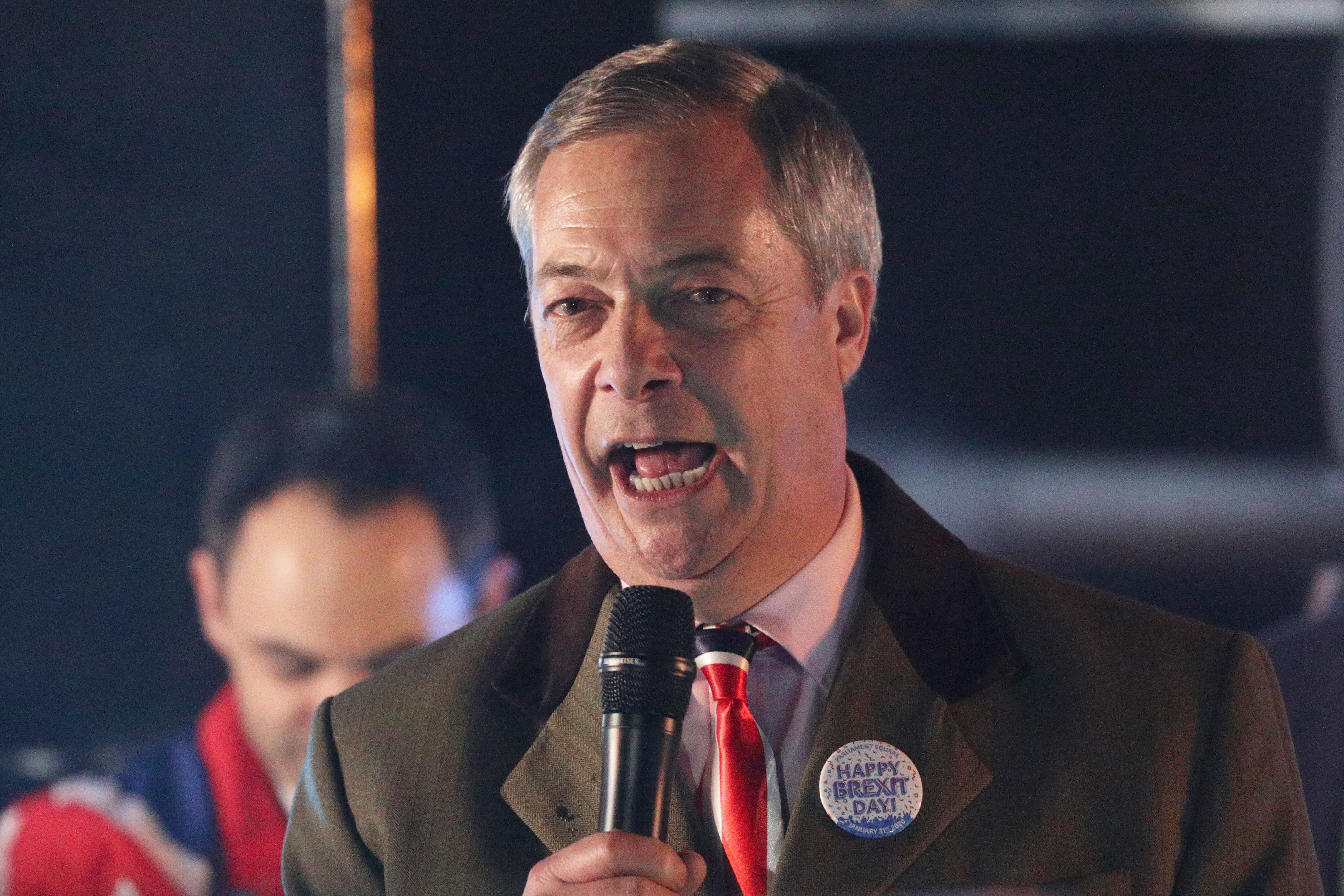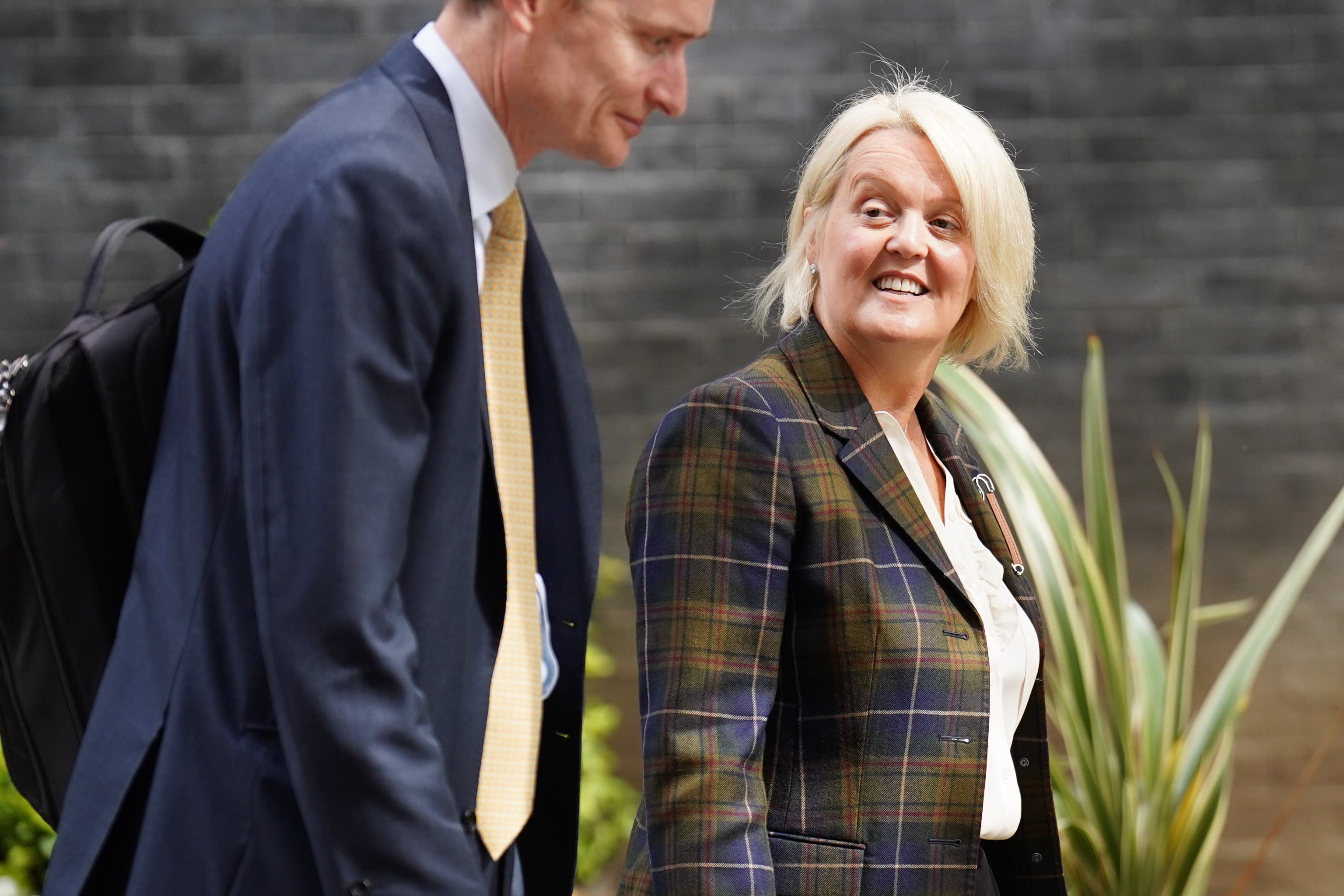Who is Alison Rose? NatWest boss who quit after admitting Nigel Farage leak to BBC
Dame Alison Rose was recently appointed to Rishi Sunak’s new business council
Your support helps us to tell the story
From reproductive rights to climate change to Big Tech, The Independent is on the ground when the story is developing. Whether it's investigating the financials of Elon Musk's pro-Trump PAC or producing our latest documentary, 'The A Word', which shines a light on the American women fighting for reproductive rights, we know how important it is to parse out the facts from the messaging.
At such a critical moment in US history, we need reporters on the ground. Your donation allows us to keep sending journalists to speak to both sides of the story.
The Independent is trusted by Americans across the entire political spectrum. And unlike many other quality news outlets, we choose not to lock Americans out of our reporting and analysis with paywalls. We believe quality journalism should be available to everyone, paid for by those who can afford it.
Your support makes all the difference.Dame Alison Rose is a prominent figure in the finance industry, the first woman to be appointed to a top leadership role at one of the UK’s “Big Four” banks.
But after a three-decade-long career in NatWest, Dame Alison was forced to quit her £5.2 million job amid a row involving Nigel Farage, the former leader of the UK Independence Party (UKIP).
Stepping down as NatWest’s chief executive by “mutual consent” on Tuesday evening, Dame Alison admitted she made a “serious error of judgment” when she discussed Mr Farage’s relationship with private bank Coutts – owned by NatWest Group – with a BBC journalist.

Last week, Mr Farage presented evidence, in the form of a 40-page dossier, that his account at Coutts had been closed partly due to his political views conflicting with the bank’s values.
The evidence obtained from the bank through a data request contradicted a BBC News story, which initially claimed that the account closure was motivated by commercial reasons only, citing Mr Farage‘s failure to meet a £1 million borrowing requirement. Dame Alison has since admitted she was the source of the story.
Born on 13 December 1969, Dame Alison was raised in a military family and travelled widely. She graduated from the University of Nottingham with a degree in law before going to the prestigious Harvard University in the US.
After graduating from Harvard Business School she joined NatWest Group in 1992, when it was known as the Royal Bank of Scotland (RBS) Group. Climbing the ladder to take up senior leadership roles over the years she became CEO in 2019.
Dame Alison took over the bank, which had stabilised after the financial crisis nearly killed it, from New Zealander Ross McEwan.
The then 49-year-old banker faced major challenges after taking over the reins of the bank and was seen as a continuity candidate to steer it through a less turbulent time.
Recognised as a meticulous chief executive, her employees, behind closed doors, often found themselves scrambling to respond to her insightful questions, revealing her acute understanding of the bank’s operations.
In the six years leading up to her appointment, the group underwent significant restructuring, resulting in a reduction of headcount from 109,000 to 66,600.
Moreover, during this period, the bank made the strategic decision to withdraw operations from 26 out of 28 countries, streamlining its global presence.

But as she took charge of the bank, Dame Alison wanted to make an impression, complaining that the bank was still “far too complex” and that it was “difficult to get things done”.
One of her initial notable actions was to initiate the rebranding of the bank from RBS to NatWest Group. She also gained attention for implementing notable changes, including offering up to a year of leave to new fathers and discontinuing new loans to oil and gas companies.
During its tumultuous history, RBS Group had experienced a brief period of being the world’s largest bank before the 2008 financial crisis, achieved through an aggressive expansion strategy that involved the acquisition of the National Westminster Bank in 2000 and Dutch bank ABN Amro in 2007.
In 2016, she described the period of financial crisis as “a pretty traumatic period” for the industry.
“There was the experience of watching everything we had been working on change, and the terrible situation that RBS found itself in,” she told the Evening Standard. “That was a pretty emotional and difficult experience.”
Over the years, she worked to oversee the bank that had some 19 million customers in the UK and around 60,000 employees globally. Meanwhile the government has gradually divested its stake in the company, resulting in public ownership falling below 50 per cent for the first time since the bailout took place last year.

In 2021, the mother of two told The Telegraph that running NatWest during the Covid pandemic “was much easier than managing homeschooling [of her kids]” during the lockdown.
Earlier this year, she received a substantial payout of over £5m, following robust profits, marking the first time NatWest granted a bonus to a chief executive since the government’s rescue of the company during the 2008 financial crisis.
At the beginning of this year, King Charles III honoured her by naming her a Dame Commander of the British Empire, recognising her exceptional contributions and achievements, and just last week she was appointed to prime minister Rishi Sunak’s new business council.




Join our commenting forum
Join thought-provoking conversations, follow other Independent readers and see their replies
Comments